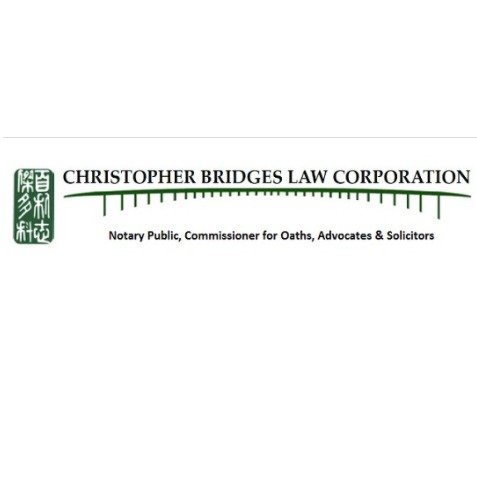Best Child Custody Lawyers in Alexandra
Share your needs with us, get contacted by law firms.
Free. Takes 2 min.
Free Guide to Hiring a Family Lawyer
List of the best lawyers in Alexandra, Singapore
Singapore Child Custody Legal Articles
Browse our 2 legal articles about Child Custody in Singapore written by expert lawyers.
- The Fundamentals of Commencing a Divorce in Singapore
- There is actually only one ground of divorce in Singapore; the irretrievable breakdown of the marriage which is to be found in Section 95 of the Women’s Charter. To prove that the marriage has irretrievably broken down, you must be able to prove to the Court one of the 5... Read more →
- Ancillary Matters: Child Custody, Care & Control, Access of Children
- This article will only apply to parties with children under 21 years old. The Court has repeatedly placed emphasis on the best interests of the welfare of the children. The children’s welfare is measured in terms monetary and physical comfort with the parent, the ties of affection with the parent,... Read more →
About Child Custody Law in Alexandra, Singapore
In Alexandra, Singapore, the main focus of the law governing child custody is on the welfare of the child. This includes maintenance, care, and education in the optimal environment possible. The law is also underpinned by the belief that the child’s contact with both parents should be maintained post-divorce. Generally, the court grants either sole custody to one parent or joint custody to both parents, based on their ability to cooperate in decisions related to the child's welfare.
Why You May Need a Lawyer
Understanding child custody law and navigating through the legal process in Alexandra, Singapore can be challenging. You may need a lawyer for various reasons including: when trying to understand the legal implications of different custody arrangements, when trying to reach an agreement with your spouse in terms of custody, if your spouse has already engaged a lawyer or if court proceedings have commenced, and during negotiation or mediation processes for resolving disputes over child custody.
Local Laws Overview
The local laws of Alexandra, Singapore are governed by the Women’s Charter and the Guardianship of Infants Act. The court, when deciding upon custody, will always prioritize the child's welfare. Typically, the mother is the primary caretaker, but fathers aren't devoid of their parental rights and duties. The court can order sole custody, joint custody, or even split custody. Visitation or access rights are offered to the non-custodial parent. This upholds the principle that children should maintain contact with both parents after a divorce or separation.
Frequently Asked Questions
1. How does the court decide on child custody?
The court uses the 'welfare principle', focusing on the child's best interests. It takes into consideration the child's wishes, the parents' views, the child's relationship with their parents and siblings, and the parents' ability to provide for the child.
2. What is joint custody?
A joint custody order means that both parents have equal say in key decisions about the child's upbringing, regardless of the child's primary place of living.
3. Can a father get custody of a child in Alexandra, Singapore?
Yes, the law does not favor either parent based on gender. The decision is rooted in the best interests of the child.
4. How are visitation rights decided?
The court aims to provide ample quality time for both parents with the child. The non-custodial parent is typically given regular visitation rights unless it's detrimental to the child’s well-being.
5. Can custody agreements be modified?
Yes, if there’s a significant change in circumstances and it is in the best interest of the child, custody agreements can be revisited and modified.
Additional Resources
The Ministry of Social and Family Development (MSF) provides resources and information on child custody issues. Legal Aid Bureau offers assistance to those who cannot afford legal services, while Family Justice Courts provide a comprehensive guide to the process of divorce and subsequent matters such as child custody.
Next Steps
If you are in need of legal assistance in child custody matters, the first step is to consult with an experienced family lawyer who can guide you through the legal process. Preparing necessary documents including a parenting plan or proposal, maintaining records of interactions with the child, and staying involved in the child’s life are key parts of the process.
Lawzana helps you find the best lawyers and law firms in Alexandra through a curated and pre-screened list of qualified legal professionals. Our platform offers rankings and detailed profiles of attorneys and law firms, allowing you to compare based on practice areas, including Child Custody, experience, and client feedback.
Each profile includes a description of the firm's areas of practice, client reviews, team members and partners, year of establishment, spoken languages, office locations, contact information, social media presence, and any published articles or resources. Most firms on our platform speak English and are experienced in both local and international legal matters.
Get a quote from top-rated law firms in Alexandra, Singapore — quickly, securely, and without unnecessary hassle.
Disclaimer:
The information provided on this page is for general informational purposes only and does not constitute legal advice. While we strive to ensure the accuracy and relevance of the content, legal information may change over time, and interpretations of the law can vary. You should always consult with a qualified legal professional for advice specific to your situation.
We disclaim all liability for actions taken or not taken based on the content of this page. If you believe any information is incorrect or outdated, please contact us, and we will review and update it where appropriate.








